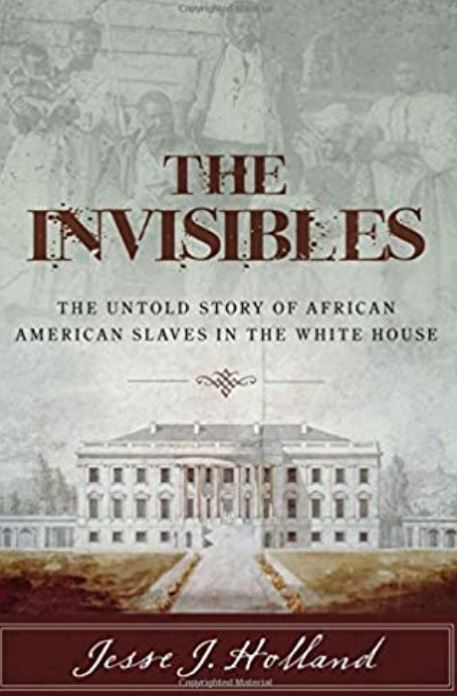Holland puts 'narrative around' slaves in White House
 Jesse Holland's 2016 book The Invisibles: The Untold Story of African American Slaves in the White House grew in part out of his love of history.
Jesse Holland's 2016 book The Invisibles: The Untold Story of African American Slaves in the White House grew in part out of his love of history.
"I've always been a fan of history," Holland said at a virtual gathering of National Press Club members Wednesday evening, July 15. "History is always changing. We're always learning more about yesterday."
The book was a follow up of his first non-fiction book, Black Men Built the Capitol: Discovering African-American History In and Around Washington, D.C.
Holland, a longtime reporter with the Associated Press who now teaches at George Washington University, said that when he came to D.C. to work for the AP, he encountered a large body of lore and documentation about the role of African Americans in the history of the nation's capital. But "nobody had ever bothered to put a narrative around it."
The Invisibles began as the thesis for his master's degree in creative non-fiction. He then spent several years filling out the stories of those slaves who'd lived in the White House – their back stories, what happened to them after leaving the White House.
Holland described the last living slave who'd been owned by a president, William Johnson. Though he hadn't lived in the White House, Johnson had been owned by President Andrew Johnson. Famed reporter Ernie Pyle found Johnson in Tennessee and wrote a column about him, leading to Johnson's invitation to the White House to meet President Franklin Roosevelt, who gave him a silver-tipped cane.
Holland was amazed that when he gave a talk in Tennessee about The Invisibles, a man in the audience approached him afterwards and said he owned that very cane, which he'd picked up at a yard sale.
Holland, who also guest hosts C-SPAN's Washington Journal on Saturday mornings, said among his upcoming projects is a documentary based on The Invisibles. More information about his work is available at his web site, www.jessejholland.com.
Wednesday's talk was the latest in a series of such informal Zoom events convened by Club board member Del Wilber, a reporter with the Los Angeles Times.
